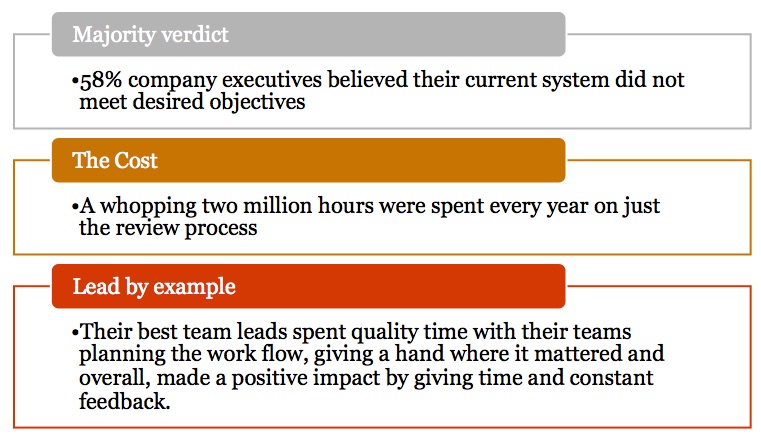
This is a guest post by Neethu Steven, founder and principal consultant at EstherStephen, a consulting firm that works with growth start-ups. Neethu is a qualified Accountant with a love for tech and a keen eye for establishing and improving start-up business processes.
Meet Ava, a senior executive trying hard to manage a team of ten, keep them motivated and deliver results on tight deadlines. Ava needs to keep customers happy and her team engaged and efficient. When it comes to ‘that time of the year’, team members who were erstwhile pally and comfortable suddenly become shifty and nervous around her. After the review, some people avoid her, some openly praise her and some remain indifferent. Fiction apart, this is a story that rings true for most managers in Ava’s position.
The human capital is the most coveted of all business resources. There simply can’t be a value attributed to it (not in the real sense we value assets). Your people represent the ideals you have created as an organisation and as a business. So how does one measure and reward good performance?”
Personally, I don’t prefer calling them “performance appraisals” – it’s too reminiscent of a school grading system. Vauhini Vara, in her 2015 write-up, The Push against Performance Reviews, makes a compelling case for scrapping the system. Many of us will relate to the arguments she puts across – personal bias of managers affecting appraisals, the results demotivating people, an over-emphasis on individuals and their personality than performance of a task among others.
Instant feedback vs the annual cycle
In an earlier blog post, Sebastian Kang explores the idea of instant performance management – creating a process of constant and pertinent feedback. But, how instant is instant? There’s the issue of time management. Many organisations have adopted the concept successfully, and understanding how they came to this conclusion and the steps thereafter are noteworthy.
Accenture
The mammoth firm is over-hauling this entire annual agenda for a modern evaluation system. The performance appraisal in its true form created frustrations among employees and was a total waste of time vis-à-vis the results it produced. The transition is set to begin in the 2016 fiscal – September.
Deloitte
In classic Deloitte style, the company conducted a survey to see how well-placed their performance appraisals were. The findings:

Are you ready to take the leap?
Sure, the way most appraisals are structured, it’s a one-way street. But uprooting them for a new system comes rife with its own set of dilemmas and problems. Here’s some thoughts on how to get the process started.

Conclusion
Identifying the roadblocks to productivity in the workplace will go a long way in creating an appraisal system that’s best suited to each organisation’s culture and emotional make-up. In addition to rewarding employees, this is the fundamental agenda behind any performance management process. After all – a happy employee will take care of your customers.
References
http://www.newyorker.com/business/currency/the-push-against-performance-reviews
http://www.performance-appraisal.com/news.htm






